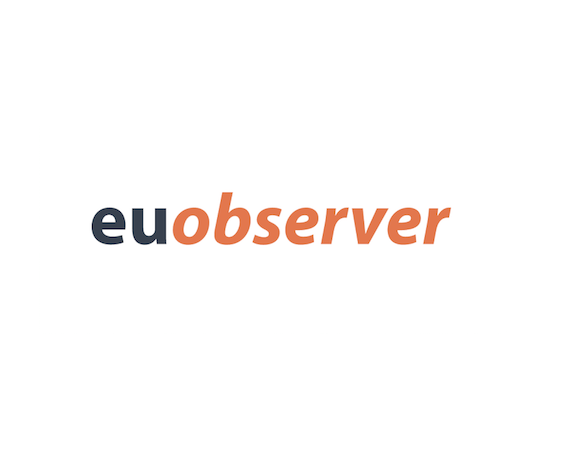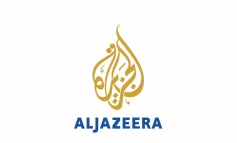October 1st 2018
Original Post: https://euobserver.com/justice/142987
Ola Al-Qaradawi, a 56-year old mother of three, has been locked up in solitary confinement without charge for over 450 days at the AlQanater prison in Egypt.
Last week, her distraught older son, Ahmad Khalaf, told EUobserver that she is being held in the punishment wing of the women’s prison, reputed to be among the worst in the country.
“There is no sunlight in her room. There is no ventilation, she is not allowed to leave that cell except for five minutes to use the bathroom once every morning,” he said.
His father Hosam Khalaf (Ola’s husband) has endured a similar fate. He is being held without charge in Egypt’s Tora prison. Unlike Ola, the father is not in solitary confinement. Both are US green card holders.
“They are being held in inhumane conditions, both of them, especially my mother. As far as we know, she is the longest political prisoner in Egypt that has been held in solitary confinement,” Khalaf told EUobserver.
EU’s pivot to Egypt
Their cases highlight the widespread human rights abuses in Egypt by a government now being courted by the EU in their bid to crack down on migration flows from north Africa and – along with other deals – to turn Egypt into an energy hub.
At the EU’s informal summit in Salzburg last month, European Council president Donald Tusk praised the regime in Cairo, seeking greater and deeper cooperation on a wide range of issues, most notably migration.
Austria’s chancellor Sebastian Kurz praised Egypt as “efficient”, telling reporters that the government under president Abdel Fattah el-Sisi set an “example when it comes to illegal migration and people-smuggling.”
Tusk and Kurz met el-Sisi on a joint visit to Egypt in September, amid a separate deal to pipe offshore natural gas from Cyprus to processing plants in Egypt.
The European Commission has now started telling reporters that Egypt “is an important partner for the European Union” and begun planning an EU-Arab League summit in Egypt for early 2019.
Open air prison for critics
Such platitudes fall flat with human rights activists. Amnesty International recently described Egypt as an “open air prison for critics.”
Amnesty says security agencies have blocked at least 504 websites without judicial authorisation or oversight since April, mainly under the pretext of “anti-terrorism” measures.
The UN High Commissioner for Human Rights over the summer demanded the unconditional release of both Ola and Hosam. The UN working group on arbitrary detention describe their detention as illegal and in violation of international law.
In January, some 71 members of the US congress also lobbied for their release. In August, their case was heard in a sub-committee at the US house of representatives.
In Europe, the commission said it is following the pair’s case closely. However, when asked what they have done to help secure their release, the commission gave a vague response.
“The EU has a variety of human rights tools at its disposal, and the approach to each case of concern is considered individually in its specific context,” it said.
Ahmad Khalaf says his mother was never politically active. He says she went on hunger strike for 80 days to protest at her poor treatment.
“We have been living in Egypt for 25 years, we have never had any issues similar to this. Only after the regime change in 2013, this started happening,” he said.
The couple had been taken from their family holiday home in northern Egypt on 30 June 2017. Khalaf, his wife and small child, had left them just hours before.
The pair were detained without a search or arrest warrant on accusations that have yet to materialise. But Khalaf believes their imprisonment is linked to a wider regional dispute with Qatar.
Ola is a Qatari national. Her father, Imam Qaradawi, is a well known Islamic scholar and outspoken critic of the Egyptian government.
“We are speculating, they haven’t provided any charges or any proof, we are speculating that it has to do with the diplomatic crisis regarding Qatar,” said Khalaf.
Khalaf, his wife and daughter, all now live in Europe. His two younger sisters live in the United States.
He believes the EU should help and has met several EU officials, including Portuguese socialist MEP Ana Gomes and European parliament vice president Pavel Telicka.
“They [EU] do have stronger ties with Egypt now but that doesn’t mean they will turn a blind eye to the human rights abuses, this is the message that we have received from all the officials that we have met,” said Khalaf.
In May, Gomes sent a two-page letter to the EU’s foreign policy chief Federica Mogherini asking her to demand that the Egyptian authorities release Ola and Hosan.
Mogherini, in her response, said they were aware of the specific case, noting that they are “following the human rights situation in Egypt very closely”.






Leave a Reply